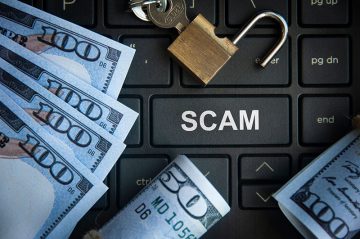ACH-ELECTRONIC FUNDS TRANSFER Email Scam

After analyzing the email titled "ACH-ELECTRONIC FUNDS TRANSFER," it has been identified as spam with the intention of deceiving recipients. The email falsely claims that funds have been transferred to the recipient's account, aiming to trick individuals into providing their email login credentials on a phishing website.
The spam email initiates by presenting itself as an ACH (Automated Clearing House) electronic funds transfer, referencing a purportedly received document called "Deposit Confirmation" along with the specified date of receipt. The subject of the email indicates a fund transfer of 13,456 USD.
It is essential to emphasize that all the information presented in this email is fictitious, and the message is not affiliated with any legitimate service providers or entities.
When the recipient clicks on the "View All Documents" link, it leads to a phishing website that replicates the recipient's email sign-in page. Any login credentials entered on this site will be captured and transmitted to scammers.
The ramifications of falling victim to such scams extend beyond the compromise of an email account. Cybercriminals may exploit hijacked email accounts to register on various platforms and services. This unauthorized access allows them to misuse social accounts by impersonating the account owner and soliciting loans, donations, promoting scams, or spreading malware through malicious files or links.
Additionally, compromised finance-related accounts, such as online banking, money transferring, e-commerce, or cryptocurrency wallets, may be exploited for fraudulent transactions and unauthorized online purchases. It is crucial for recipients to exercise caution, verify the authenticity of unexpected emails, and refrain from clicking on links or providing sensitive information to safeguard against phishing attempts.
What Are the Top Signs of an Email Scam?
Recognizing the signs of an email scam is crucial to protecting yourself from phishing attempts and fraudulent activities. Here are the top signs of an email scam:
Unexpected or Unsolicited Emails:
Scam emails often arrive unexpectedly or without any prior interaction with the sender. Be cautious if you receive emails from unknown sources or that you didn't anticipate.
Spelling and Grammar Errors:
Many scam emails contain spelling and grammar mistakes. Legitimate organizations typically review their communications for accuracy, so frequent errors can be a red flag.
Urgency and Threats:
Scam emails often create a sense of urgency, urging you to take immediate action or face consequences. Be suspicious of emails that threaten account closures, legal actions, or urgent requests for personal information.
Unusual Sender Email Address:
Check the sender's email address. Scammers may use email addresses that mimic legitimate ones but contain slight variations or misspellings.
Unsolicited Attachments or Links:
Avoid opening attachments or clicking on links in unsolicited emails. Scammers may use these to install malware on your device or direct you to phishing websites.








